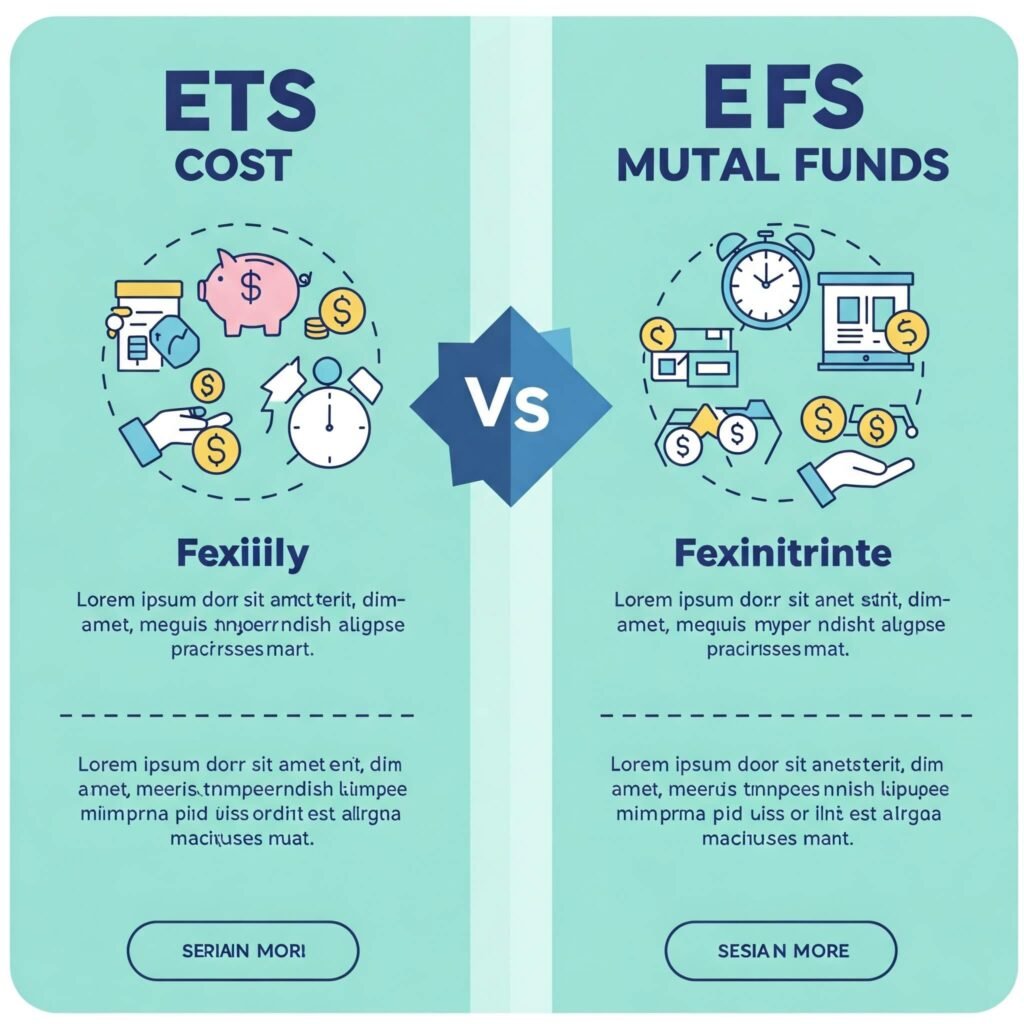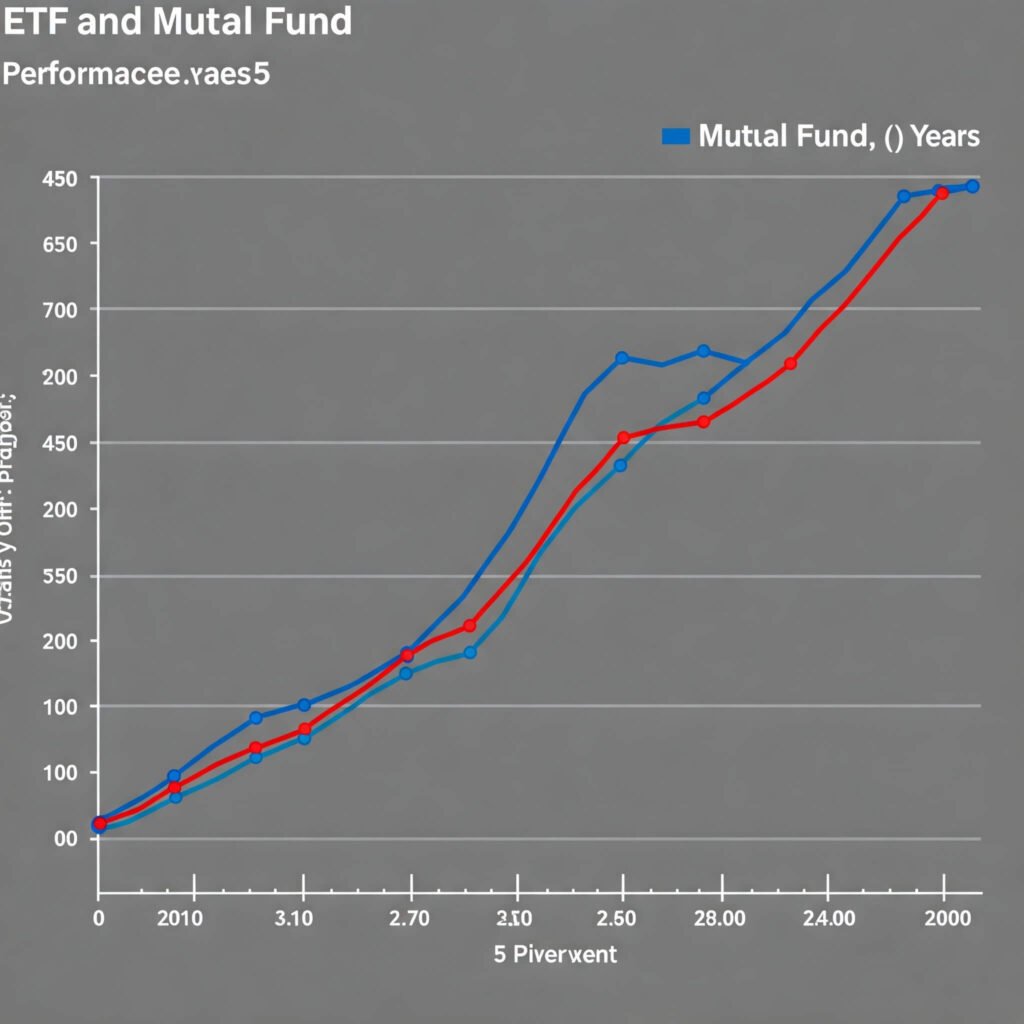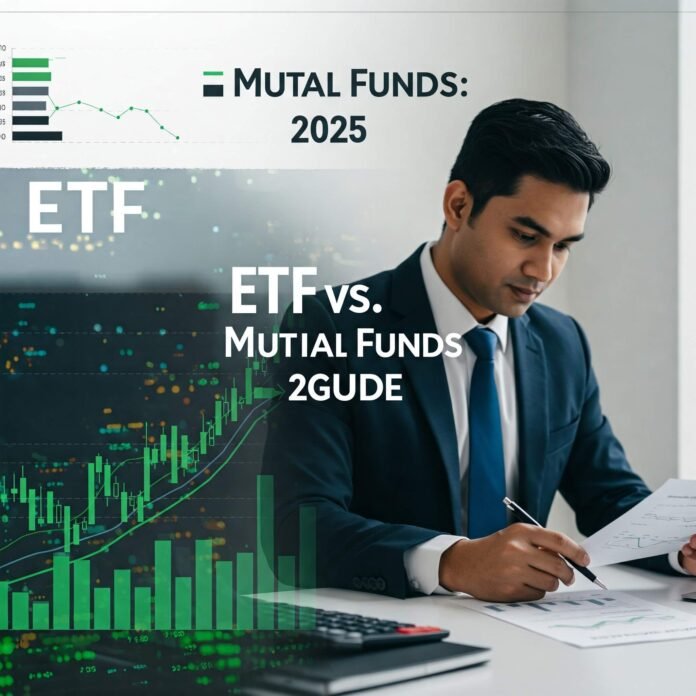Yo, ETF vs. mutual funds? Man, I’ve been down that rabbit hole, and let me tell you, it’s a wild ride. I’m sitting in my cramped NYC apartment, the radiator hissing like it’s got beef with me, and I’m still haunted by the time I dumped $400 into a mutual fund ‘cause I thought it was “safer” than ETFs—spoiler: I got hosed by fees. Like, seriously? My bodega coffee budget took a bigger hit than my ego. Anyway, I’m spilling the tea on ETF vs. mutual funds for 2025, straight from my frazzled, pizza-stained notebook. This is my ultimate guide to figuring out which investment strategy wins, with all my dumb mistakes and hard-earned wins thrown in.
Why ETF vs. Mutual Funds Feels Like Picking a Bar Fight in 2025
Okay, real talk—I’m no Wall Street hotshot. My “office” is a wobbly IKEA table littered with empty seltzer cans and a cat hair-covered laptop. But diving into ETF vs. mutual funds saved my broke butt after I realized my savings account was basically a sad piggy bank earning zilch. I started this mess last winter, snow piling up outside my window, Googling “best investment strategy” while stress-eating leftover dumplings. Contradiction time: I love the idea of “set it and forget it” investing, but I’m also that idiot refreshing my portfolio app at 3 a.m. Raw honesty? ETFs are my vibe now, but mutual funds had me in a chokehold first. Check out Investopedia’s breakdown here for a less chaotic take.
Pro tip: Start with $100 and test the waters—don’t YOLO your rent money like I almost did.
Why care? ETFs and mutual funds both let you diversify, but one’s cheaper and sexier (guess which).
My dumb moment: I thought mutual funds were “fancy” because my uncle bragged about them in ’98. Nope.

ETFs: The Cool Kid in ETF vs. Mutual Funds for 2025
Think Vanguard’s VTI or SPY, trading like stocks, with fees so low (0.03% for VTI!) they’re practically free. I got into ETFs during a heatwave in Brooklyn, my AC out, sweat dripping on my phone as I bought $200 of VTI while cursing my life choices. Big oops? I once sold an ETF during a dip ‘cause I panicked—lost $50 and my dignity. ETFs are flexible, liquid, and perfect for passive investing comparison, but they can tempt you to trade like a day-trader bro. Vanguard’s ETF guide here is clutch for newbies.
Mutual Funds: The Old-School Player in ETF vs. Mutual Funds
Mutual funds, though? They’re like that reliable but kinda boring uncle at Thanksgiving. Higher fees (0.5-2% sometimes!) and less trading flexibility, but they’re managed, so you can chill. I threw $500 into a Fidelity mutual fund last year, sitting in a noisy Jersey City café, the espresso machine screaming louder than my doubts. Surprise reaction? The fees ate my lunch—$20 gone in a month, ouch. Still, they’re solid for long-term, hands-off vibes, especially for retirement. Fidelity’s mutual fund page here explains why they’re not dead yet.
My fail: I picked a fund ‘cause it had “growth” in the name. Rookie move.se ratio.
Pro: Managed funds mean less work for you—great if you’re lazy like me.
Con: Fees can sneak up like that one bar tab you forgot about.

Fees and Costs: The Real Deal-Breaker in ETF vs. Mutual Funds
Here’s where it gets spicy—fees are the silent killer in ETF vs. mutual funds. ETFs usually have expense ratios under 0.1%, while mutual funds can hit 1% or more. I learned this the hard way in a Philly dive bar, checking my portfolio on a sticky table, realizing my mutual fund was bleeding me dry. Unfiltered thought? I felt like I’d been pickpocketed by a suit. ETFs win for low-cost ETFs, but mutual funds can make sense if you want someone else driving. Morningstar’s fee comparison here breaks it down better than I ever could.
Which Wins in 2025? My Messy Take on ETF vs. Mutual Funds
So, who’s the champ? ETFs are my go-to for 2025—they’re cheap, flexible, and vibe with my “I’m too broke to overthink” energy. But mutual funds? They’re not trash if you’ve got cash to burn and want a pro to handle it. I once mixed them up and bought a mutual fund thinking it was an ETF—cue me yelling at my laptop in a Seattle park, pigeons judging me. ETF investing 2025 is my bet, but I’m still tempted by mutual funds’ “set it and forget it” allure. NerdWallet’s take here helped me untangle this mess.
Outbound Link: Morningstar’s Guide to ETF vs. Mutual Fund Costs for deeper insights.
Pros and Cons of ETFs in 2025
Advantages of ETF Investing
- Cost Savings: Low expense ratios reduce long-term costs.
- Flexibility: Intraday trading suits active investors.
- Diversification: Access broad markets or niche sectors.
- Transparency: Holdings are disclosed daily.
Drawbacks of ETFs
- Trading Costs: Brokerage fees can add up for frequent traders.
- Bid-Ask Spreads: May impact returns in less liquid ETFs.
- Limited Active Options: Fewer actively managed ETFs available.
Pros and Cons of Mutual Funds in 2025
Advantages of Mutual Fund Investing
- Professional Management: Expert portfolio managers aim to beat the market.
- Automatic Reinvestment: Dividends and gains reinvested seamlessly.
- Accessibility: Suitable for hands-off investors.
Drawbacks of Mutual Funds
- Higher Costs: Mutual fund fees erode returns over time.
- Less Flexibility: No intraday trading.
- Tax Inefficiency: Capital gains distributions can trigger taxes.
Outbound Link: Investopedia’s ETF vs. Mutual Fund Comparison for a detailed breakdown.

Alright, that’s my chaotic, coffee-fueled rant on ETF vs. mutual funds for 2025, straight from my cluttered NYC life. I’ve screwed up plenty—still do—but figuring out this investment strategy stuff feels like cracking a secret code. It’s messy, it’s human, and it’s kinda dope. So, grab your phone, pick an ETF (or mutual fund if you’re fancy), and start with $50. What’s your worst investing flop? Drop it in the comments—I’m here for the tea, no judgment.
Outbound Link: CNBC’s 2025 Investment Trends for market updates.




